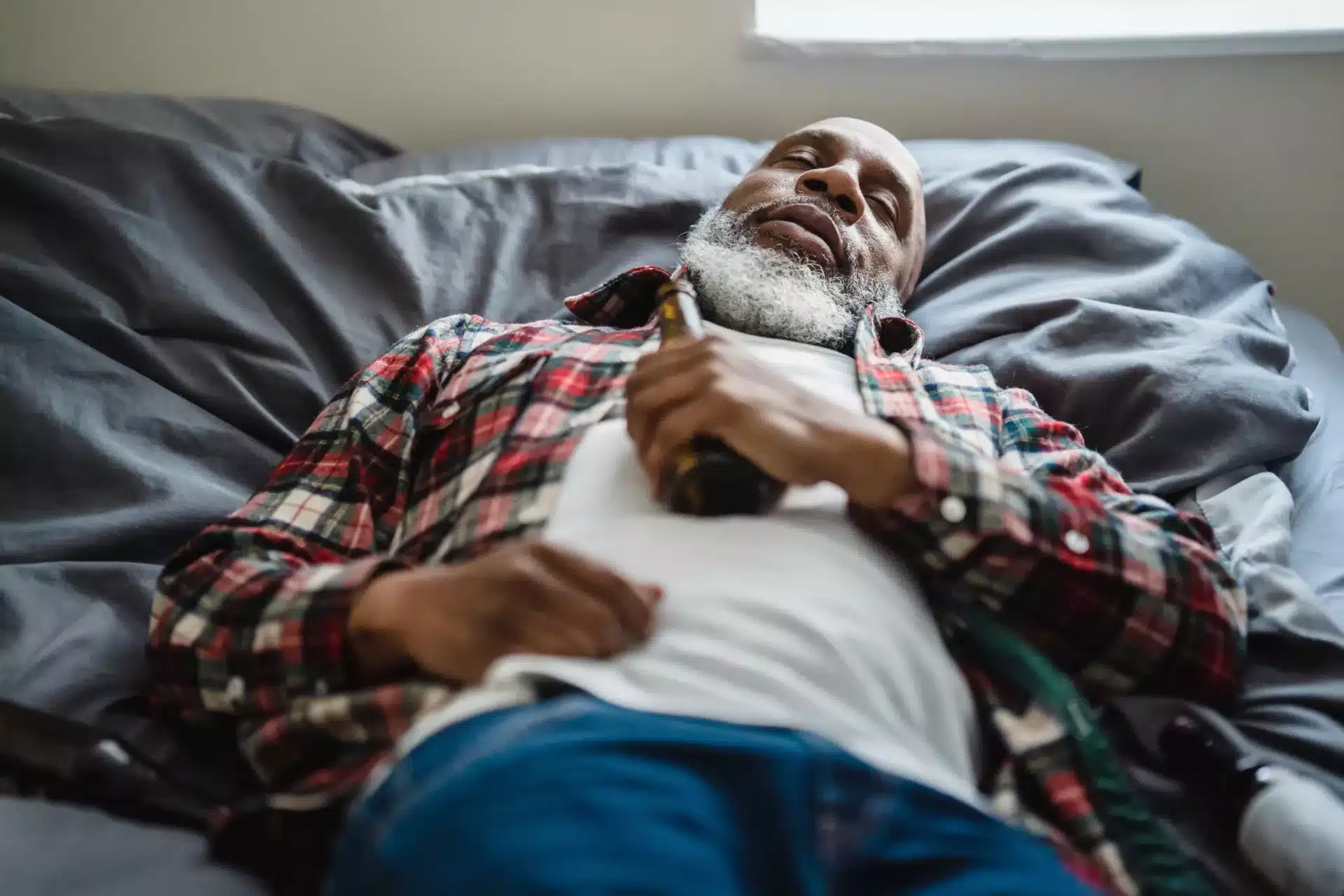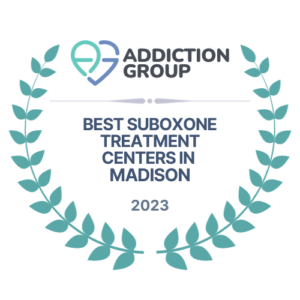Addiction recovery is a challenging and complex process that varies for each individual. However, certain issues are more prevalent among men, which can create unique challenges during their addiction recovery journey. Men often face barriers which may hinder their willingness to seek help. We can gain a better understanding of the distinct obstacles men face in addiction recovery and develop strategies to better support their journey to recovery by understanding these issues.
In this article, we will explore the various issues that men face during the process of addiction recovery, including societal expectations, biological factors, mental health concerns, and the impact of these issues on the recovery process.


Importance of Addressing These Issues for a Successful Recovery
Addressing men’s issues in addiction recovery is crucial to achieving lasting sobriety and maintaining overall well-being. By understanding the unique challenges that men face during their recovery journey, professionals, family members, and friends can provide tailored support and guidance to help men overcome these obstacles. Recognizing and addressing these issues not only increases the likelihood of a successful recovery but also fosters a more inclusive and effective approach to addiction treatment.
Acknowledging and addressing the unique challenges that men face in addiction recovery is crucial to enhancing the quality and efficacy of treatment programs. By understanding the specific issues that men experience, treatment providers can design and implement strategies that better support men in their journey towards sobriety and long-term recovery.
The Prevalence of Addiction Among Men
Men are more likely to develop substance use disorders compared to women, with research showing a higher prevalence of addiction among the male population. According to the National Survey on Drug Use and Health, in 2019, approximately 67% of individuals with a substance use disorder were men, while 33% were women.
Men account for nearly two-thirds of all admissions to substance abuse treatment facilities. The higher rates of addiction among men can be attributed to a combination of biological, psychological, and societal factors that contribute to their vulnerability to substance use disorders.
Biological Factors
Research suggests that men are more prone to addiction due to biological factors such as genetics and hormonal differences. For example, testosterone, a hormone found in higher levels in men, has been linked to increased risk-taking behavior, which can contribute to the initiation and progression of substance use disorders. Genetic predispositions may render men more susceptible to addiction, with studies showing that genetic factors account for approximately 40-60% of an individual’s vulnerability to addiction.
Societal Factors
Societal factors and cultural norms also play a significant role in the prevalence of addiction among men. Traditional gender roles and expectations often pressure men to conform to stereotypes, such as being strong, independent, and unemotional. These expectations can result in men suppressing their emotions and turning to substances as a coping mechanism. Men may be more likely to engage in substance use due to societal pressures to partake in risky behaviors or to fit in with their peers.
Moreover, men may be less likely to seek help for their addiction due to societal stigma and the fear of being perceived as weak or vulnerable. This reluctance to seek help can further exacerbate their addiction and make it more difficult for men to access the support and resources they need for recovery.
Both biological and societal factors contribute to the higher prevalence of addiction among men. It is essential to recognize and address these factors to develop targeted interventions and treatment strategies that can effectively support men in their recovery journey.
The Impact of Societal Expectations on Men Seeking For Help
Societal expectations and traditional gender roles have a significant impact on men’s willingness to seek help for addiction issues. Men are often taught from a young age to be strong, self-sufficient, and to suppress their emotions. This pressure to adhere to these expectations can create a culture of silence among men, making it difficult for them to openly discuss their struggles with addiction or mental health.
Men who internalize these societal norms may fear being judged or viewed as weak if they admit to needing help. As a result, they may delay seeking treatment or avoid it altogether, allowing their addiction to worsen and potentially leading to severe consequences for their physical and mental health.
The Stigma Surrounding Addiction Treatment for Men
The stigma surrounding addiction treatment is another barrier that prevents many men from seeking help. Addiction is often misunderstood and judged harshly by society, causing men to feel ashamed and reluctant to admit they need support. This stigma can be exacerbated by the perception that men should be able to handle their problems independently.
Moreover, men may fear the potential repercussions of revealing their addiction, such as damage to their relationships, careers, or social standing. This fear can further discourage them from seeking help, as they may believe the risks associated with admitting to their addiction outweigh the potential benefits of treatment.
To break the cycle of silence and stigma, it is crucial to promote open conversations about addiction and mental health, particularly among men. By challenging societal expectations and encouraging men to share their experiences, we can foster a more supportive environment that enables men to seek the help they need without fear of judgment or negative consequences. This shift in societal attitudes can ultimately lead to more successful recovery outcomes for men struggling with addiction.
Emotional Expression and Vulnerability in Recovery
Incorporating discussions about the impact of societal expectations and toxic masculinity can help men become more self-aware and challenge these harmful stereotypes. By fostering vulnerability and empathy in support groups and therapy, men can develop stronger connections with others in recovery and gain valuable insights into their own emotional well-being.
The Importance of Emotional Expression in the Healing Process
Emotional expression plays a crucial role in the addiction recovery process. Allowing oneself to openly express feelings and emotions can lead to a greater understanding of the underlying issues that contribute to substance abuse. When men feel more comfortable discussing their emotions, they can more effectively process their experiences and work towards healing.
Addressing Toxic Masculinity
Toxic masculinity is a cultural concept that perpetuates harmful stereotypes about men, such as the idea they must always be strong, unemotional, and aggressive. This mindset can negatively impact men’s mental health and create barriers in their recovery. Redefining strength to include emotional vulnerability, empathy, and support-seeking can help dismantle toxic masculinity and promote healthier coping mechanisms.
By embracing a more inclusive definition of masculinity, men in recovery can better connect with their emotions and address the root causes of their addiction.
Encouraging Vulnerability and Empathy in Support Groups
Support groups and therapy sessions are crucial for fostering emotional expression and vulnerability among men in addiction recovery. These environments should prioritize creating safe spaces where men feel comfortable sharing their feelings and experiences. Group facilitators and therapists can help by modeling empathetic listening, validating emotions, and encouraging open communication.


Coping With Mental Health Issues in Recovery
Addiction and mental health disorders often go hand in hand, with many men experiencing co-occuring conditions. Substance abuse can be both a cause and a consequence of mental health issues, creating a complex relationship between the two. For instance, men may use drugs or alcohol as coping mechanisms for undiagnosed or untreated mental health disorders, such as depression or anxiety. Substance abuse can exacerbate pre-existing mental health conditions or contribute to the development of new ones.
Maintaining Mental Health During Recovery
Taking care of one’s mental health is an ongoing process, particularly during addiction recovery. Practicing self-care and stress management can help men maintain their mental well-being and reduce the risk of relapse. Some strategies for promoting self-care and stress reduction include:
- Developing a daily routine that includes exercise, healthy eating, and adequate sleep.
- Engaging in relaxation techniques, such as mindfulness meditation, deep breathing exercises, or progressive muscle relaxation.
- Pursuing hobbies and interests that provide a sense of accomplishment and enjoyment.
- Building a strong support network of friends, family, and peers in recovery who can provide encouragement and understanding.
- Seeking professional help when needed, such as therapy or support groups, to address ongoing mental health concerns.
Men can build a solid foundation for long-term recovery and overall mental health if they prioritize self-care and stress management.
Treatment to Address Men’s Issues
To ensure the most effective addiction recovery process for men, it is essential to tailor treatment programs that cater to their unique needs and challenges:
Gender-Specific Treatment Approaches
Gender-specific treatment approaches are crucial in addressing men’s issues in addiction recovery. These approaches take into account the biological, psychological, and social differences between men and women, allowing for more targeting interventions By focusing on men’s unique challenges, gender-specific treatment programs can foster a supportive environment where men feel understood and comfortable sharing their experiences.
Cognitive-Behavioral Therapy for Men
Cognitive-behavioral therapy (CBT) is a widely-used therapeutic approach that helps individuals identify and change negative thought patterns and behaviors. For men in recovery, CBT can be particularly effective in addressing issues such as anger management, self-esteem, and communication skills. By encouraging men to challenge their beliefs and develop healthier coping strategies, CBT can support lasting change and foster personal growth.
Motivational Interviewing
Motivational interviewing (IM) is a client-centered, goal-oriented counseling approach that aims to enhance an individual’s motivation for change. MI can be an effective tool for men in addiction recovery, as it allows them to explore their ambivalence about change and build confidence in their ability to succeed. By emphasizing personal choice and empowerment, motivational interviewing can help men overcome the barriers that may be hindering their recovery process.
Adventure Therapy
Adventure therapy is an experiential approach that utilizes outdoor activities and challenges to promote personal growth, self-discovery, and healing. This form of therapy can be especially beneficial for men, as it encourages them to step out of their comfort zones and confront their fears in a supportive environment. Adventure therapy can help men develop essential life skills such as teamwork, problem-solving, and resilience, all of which can contribute to a successful addiction recovery.
Life Coaching
Life coaching is a holistic approach to personal development that focuses on helping individuals achieve their goals and maximize their potential. For men in addiction recovery, life coaching can provide invaluable guidance and support as they navigate the challenges of sobriety and work towards building a fulfilling life. Life coaching can empower them to take control of their lives and make lasting, positive changes if men’s unique needs and aspirations are addressed.
The Role of Family and Social Support
Family and social support play a crucial role in the addiction recovery process:
The Impact of Family Dynamics on Addiction and Recovery
Family dynamics can significantly influence an individual’s susceptibility to addiction and their ability to achieve lasting recovery. For men, family relationships may be a source of stress, conflict, or even trauma contributing to the development of substance use disorders. On the other hand, strong family bonds and positive communication can provide a crucial foundation for recovery, offering emotional support and a sense of belongingness.
Involving Family in the Treatment Process
Involving family members in the addiction treatment process can be highly beneficial for men in recovery. Family therapy and education programs can help both the individual and their loved ones better understand the nature of addiction and the challenges that come with recovery.
Families can work together to create a supportive environment that facilitates healing and growth by fostering open communication and addressing any underlying issues. Involving family members in treatment can help them develop the skills and knowledge necessary to support their loved one’s long-term recovery efforts.
Sober Living and Support Groups
A strong support network is essential for men navigating the challenges of addiction recovery. Sober living arrangements, such as halfway houses or recovery residences, can provide a safe, substance-free environment where men can build relationships with others who are also in recovery. These arrangements can help men develop a sense of camaraderie and accountability, which can be invaluable in maintaining sobriety.
Support groups, such as Alcoholics Anonymous (AA) or Narcotics Anonymous (NA), can also play a vital role in building a social support network. These groups provide a judgment-free space for men to share their experiences, learn from others, and receive encouragement and guidance throughout their recovery journey. Men can develop a sense of belongingness and gain the confidence needed to overcome the obstacles that may arise during the recovery process by connecting with others who have faced similar challenges.


Conclusion
Addressing men’s issues in addiction recovery is crucial for long-term success. We can tailor treatment approaches to better support them on their journey by recognizing the unique challenges men face. It is essential for society as a whole to challenge stigmas and redefine strength to create an environment where men feel empowered to seek help and embrace vulnerability.
Recovery is a personal and ongoing process, but with the right support and understanding, men can overcome their struggles with addiction and build a healthier, more fulfilling future.
Interested to learn more? Read more related articles: The Role of Telemedicine in Suboxone Treatment
References:
https://www.ncbi.nlm.nih.gov/books/NBK144290/
https://recovery.org/addiction/demographics/men/
https://www.nkrc.org/blog/mens-health-month-7-challenges-men-face-in-addiction-recovery














